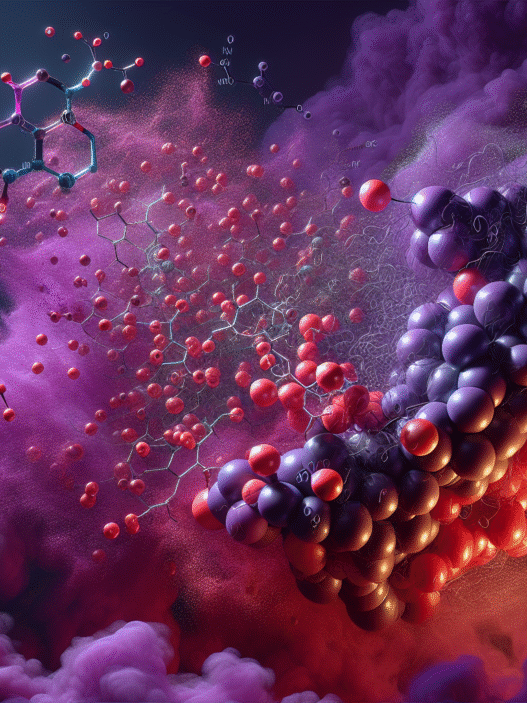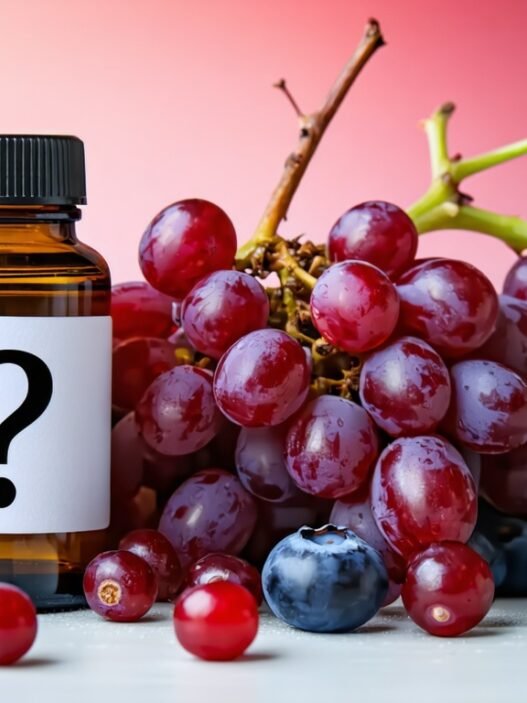Understanding Resveratrol
Resveratrol is a naturally occurring polyphenol found in various plants, including grapes, berries, and peanuts. It has attracted significant attention for its potential anti-aging effects and overall health benefits. This section explores how resveratrol may contribute to aging and cell rejuvenation, as well as its role in reversing senescence.
Aging and Cell Rejuvenation
As the body ages, cellular functions decline, leading to various age-related conditions. One significant process involved in aging is cellular senescence. Cellular senescence refers to a state of permanent cell cycle arrest, which can trigger inflammation and increase reactive oxygen species production, contributing to the development of diseases associated with aging. Resveratrol has been studied for its potential to rejuvenate cells and promote healthier biological functions.
Recent studies suggest that the ectopic induction of specific factors in combination with small molecules, which may include compounds like resveratrol, can help restore youthful gene expression patterns and improve tissue function. These interventions have shown promise in reducing the effects of aging on cellular physiology.
Reversing Senescence
Research indicates that resveratrol may play a role in reversing senescence through its impact on cell signaling pathways and gene expression. In particular, small molecule cocktails have demonstrated the ability to decrease the transcriptomic age of senescent cells, enhancing rejuvenation processes without altering their identity. Such treatments may improve cellular respiration and reduce markers of inflammation, presenting a compelling argument for the potential of resveratrol in anti-aging therapies.
For those interested in exploring further, the implications of resveratrol in areas such as anti-carcinogenic properties are also worth examining, given that its effects on cellular health may extend to cancer prevention and treatment. Balancing knowledge and caution around resveratrol supplementation is crucial, particularly concerning its effects as outlined in discussions about why is resveratrol controversial and who should avoid it?.
By understanding how resveratrol may influence aging and cell rejuvenation, individuals seeking natural health and holistic wellness solutions can make informed decisions regarding their health regimens.
Resveratrol’s Skin Benefits
Resveratrol is gaining attention for its potential benefits in skin health, particularly in anti-aging and wound healing. Natural health and holistic wellness seekers are increasingly curious about whether resveratrol can reverse aging, especially when it comes to maintaining youthful skin.
Anti-aging Effects
Resveratrol exhibits significant anti-aging effects on the skin through various biochemical mechanisms. It inhibits the phosphorylation of survivin and blocks several factors that contribute to skin aging, including nuclear factor κB (NF-κB), cyclin D1, and matrix metalloproteinases (PMC). This inhibition helps reduce skin inflammation and edema caused by ultraviolet radiation, offering protective benefits against premature skin aging.
Additionally, resveratrol contributes to slowing down the aging process by demonstrating antioxidant activity, which protects skin cells from oxidative stress. It can prevent cell apoptosis, reduce lipids, and influence several biomarkers associated with aging, such as nerve growth factor and 5α-reductase. Other benefits include:
| Skin Benefits | Effects |
|---|---|
| Reduces skin discoloration | Smoother skin tone |
| Smoothes wrinkles | Fewer visible fine lines |
| Inhibit matrix metalloproteinase 1 | Reduced breakdown of skin proteins |
The cumulative effects of these properties can result in visibly healthier and more youthful skin, making resveratrol a powerful component in the fight against aging.
Wound Healing Properties
The wound healing and skin regeneration properties of resveratrol are noteworthy. It has been shown to enhance wound healing by increasing the concentration of vascular endothelial growth factor (VEGF), which in turn accelerates the process of wound closure and promotes effective angiogenesis (PMC). Resveratrol is also involved in collagen synthesis, playing a crucial role in the repair and rejuvenation of the epidermis and hair follicles.
In summary, resveratrol not only has anti-aging properties but also aids in skin repair and regeneration. Its ability to accelerate healing and support the skin’s structural integrity further solidifies its role in skincare, particularly for those who seek holistic approaches to beauty and wellness.
For more details on the broader spectrum of resveratrol benefits, explore our related articles on is resveratrol anti-carcinogenic? and potential concerns like why is resveratrol controversial and who should avoid it?.
Resveratrol and Lifespan
Resveratrol has garnered attention not only for its skin benefits but also for its potential effects on lifespan. Research indicates that this compound may play a role in extending life expectancy and enhancing stem cell regeneration.
Impact on Life Expectancy
Studies suggest that resveratrol can extend lifespan across various animal models. It induces autophagy, a natural cellular process that removes damaged cells and promotes regeneration. This, combined with its ability to reduce oxidative stress, may contribute to longevity (NCBI).
The table below summarizes findings from studies on the lifespan extension effects of resveratrol in various species:
| Model Organism | Lifespan Extension | Key Mechanisms |
|---|---|---|
| Drosophila melanogaster | 15-20% | Induction of autophagy |
| Nothobranchius guentheri | 25% | Neuroprotective effects |
| HtrA2 knockout mice | Increased median survival | Reduced oxidative stress |
These findings imply that resveratrol may enhance cellular health, promoting longevity.
Stem Cell Regeneration
In addition to influencing lifespan, resveratrol plays a role in stem cell regeneration. This compound has been shown to enhance the proliferation and differentiation of various stem cell types, which is crucial for tissue repair and regeneration (NCBI). By supporting stem cell functionality, resveratrol may promote healthier aging and rejuvenation of tissues.
The regenerative capabilities of stem cells can significantly impact overall health as individuals age, highlighting the importance of maintaining these cells in optimal condition.
For those exploring the benefits of resveratrol, it is essential to consider various applications and effects, including potential issues such as cardiovascular impacts. For more information, consult our articles on why is resveratrol controversial and who should avoid it? and is resveratrol bad for the heart?.
Resveratrol and Cardiovascular Health
Resveratrol has gained attention for its potential benefits in promoting cardiovascular health. Research indicates that this powerful polyphenol may play a significant role in protecting the heart and improving overall vascular function.
Cardioprotective Effects
Resveratrol exerts a cardioprotective effect through several mechanisms. It enhances the production of nitric oxide, a molecule crucial for regulating blood flow and vascular health. Additionally, resveratrol modulates the renin-angiotensin system, which helps maintain blood pressure balance. Furthermore, it ameliorates oxidative stress and restores the activity of Sirt1, a protein associated with longevity and heart health (NCBI).
| Mechanism | Effect |
|---|---|
| Nitric Oxide Production | Improves blood flow |
| Renin-Angiotensin Modulation | Regulates blood pressure |
| Oxidative Stress Reduction | Prevents cellular damage |
Studies confirm that resveratrol can protect against cardiovascular diseases by enhancing nitric oxide production, reducing atherosclerosis, and improving overall heart health. Its potential to mitigate oxidative stress-induced endothelial dysfunction further highlights its importance in cardiovascular wellness.
Endothelial Function Enhancement
The endothelium is a thin layer of cells lining the blood vessels, vital for maintaining vascular health. Resveratrol has been found to enhance endothelial function, promoting better blood vessel dilation and improving circulation. By reducing oxidative stress and inflammation, it supports the overall functionality of the endothelium.
| Aspect | Impact of Resveratrol |
|---|---|
| Vascular Dilation | Improves blood circulation |
| Oxidative Stress | Reduces cellular damage |
| Inflammation | Supports endothelial repair |
These improvements contribute to better cardiovascular health and reduce the risk of heart-related diseases. Combining a diet rich in resveratrol with other heart-healthy practices can be beneficial for those seeking a holistic approach to wellness. For more insights on the effects of resveratrol, explore our article on why is resveratrol controversial and who should avoid it?.
Resveratrol and Muscle Health
Resveratrol has garnered attention for its potential role in muscle health, particularly in preventing sarcopenia and improving overall muscle mass. Sarcopenia is the age-related loss of muscle mass and function, which can significantly impact one’s quality of life.
Sarcopenia Prevention
Numerous studies demonstrate that resveratrol effectively protects against sarcopenia by improving the mass and function of skeletal muscle. This compound decreases muscle loss and promotes myogenic precursor cell proliferation, especially when combined with exercise (NCBI).
Research indicates that resveratrol treatment can lead to notable improvements in muscle growth and strength. Here is a summary of the benefits of resveratrol on muscle health relevant to sarcopenia:
| Benefit | Description |
|---|---|
| Muscle Mass Improvement | Resveratrol enhances skeletal muscle mass, counteracting the age-related decline. |
| Muscle Function | Increases muscle strength and function, contributing to better mobility. |
| Exercise Synergy | When taken alongside exercise, resveratrol’s effects on muscle health are amplified. |
Muscle Mass Improvement
In addition to preventing muscle loss, resveratrol has been found to promote muscle mass improvement effectively. The combination of resveratrol and physical activity supports muscle hypertrophy, which is crucial for maintaining strength as individuals age. Studies indicate that resveratrol can enhance muscle performance and strength by positively influencing muscle protein synthesis and degradation pathways (PubMed Central).
Resveratrol’s effects on muscle health can also be linked to its broader implications on aging and disease prevention. As it improves muscle strength and function, it may play a vital role in enhancing the overall quality of life for aging individuals. For those interested in the anti-aging properties of resveratrol and its application in various health contexts, exploring additional resources about anti-cancer properties and other benefits might be valuable.
Through its contributions to muscle health, resveratrol may be a promising supplement for individuals looking to combat the signs of aging, specifically concerning muscle deterioration and function.
Resveratrol and Disease Prevention
Resveratrol has gained attention for its potential health benefits, particularly in the realm of disease prevention. Research indicates that this natural compound may play significant roles in combating cancer and neurodegenerative conditions.
Anti-cancer Properties
Resveratrol exhibits noteworthy anti-cancer properties, making it a subject of extensive study. Research highlights its ability to inhibit cancer cell proliferation, migration, invasion, and metastasis across various types of cancer, including ovarian, gastric, and colon cancer. The mechanisms through which resveratrol acts include:
| Mechanism | Description |
|---|---|
| Inducing apoptosis | Promotes programmed cell death in cancer cells. |
| Inhibiting cell proliferation | Slows down the growth of cancer cells. |
| Suppressing metastasis | Prevents the spread of cancer to other parts of the body. |
For more detailed insights, refer to the article on is resveratrol anti-carcinogenic?. The comprehensive effects of resveratrol on tumor progression suggest a promising avenue for future cancer therapies (PubMed Central).
Neuroprotective Effects
Resveratrol also demonstrates protective effects against neurodegenerative diseases. It enhances neurotransmitter secretion, promotes the production of new neurons in the hippocampus, and mitigates neuroinflammation and oxidative stress. This multifaceted approach may lead to improved memory performance and neuronal differentiation.
| Benefit | Description |
|---|---|
| Neurotransmitter enhancement | Increases the levels of natural chemicals that transmit signals in the brain. |
| Neurogenesis | Stimulates the formation of new neurons, crucial for memory and learning. |
| Neuroinflammation reduction | Lowers inflammation in the brain, which is linked to various neurodegenerative disorders. |
Explore more about the cognitive benefits of resveratrol in the context of aging and brain health by checking resources like NIH Research Matters. Combined with its staying potential for cancer therapy, resveratrol may hold the key to a healthier, longer life through its disease-preventing properties.





















